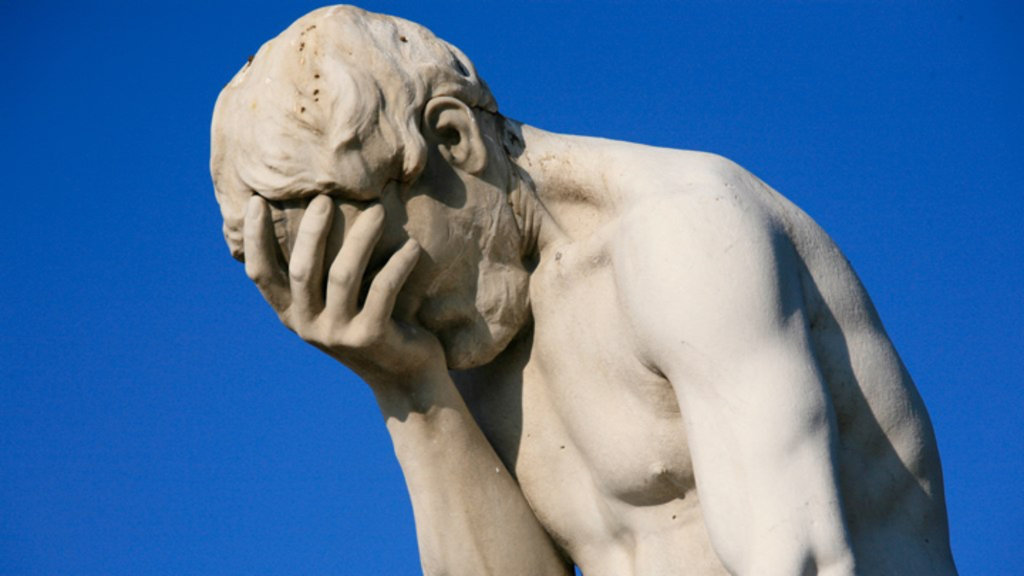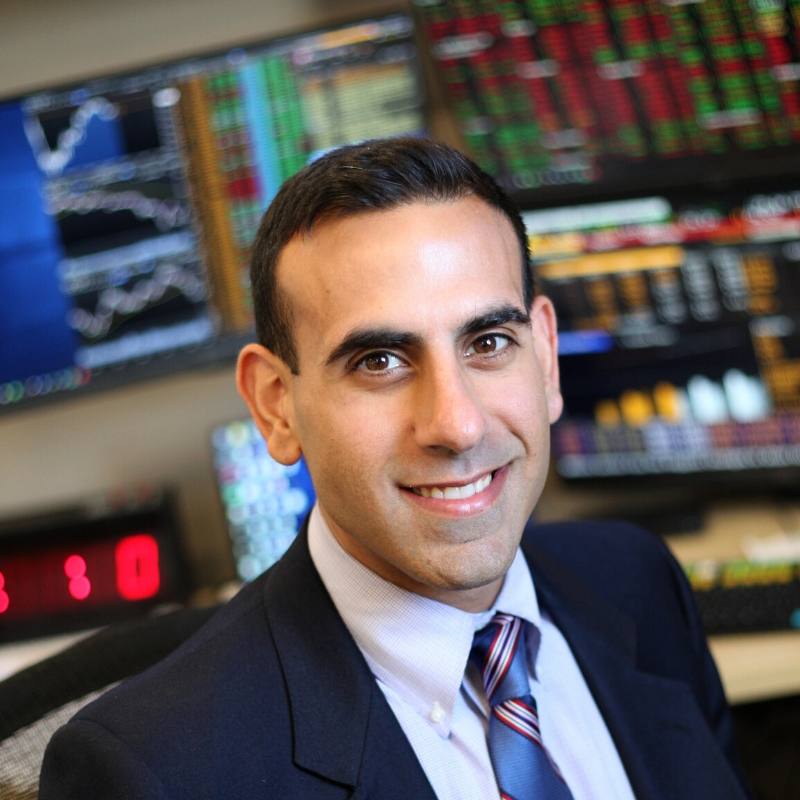
While I was traveling last week on vacation, I read Michael Batnick’s latest book Big Mistakes: The Best Investors and Their Worst Investments. So often, when we think of great investors, athletes and leaders, we tend to define them by how successful they are. Many remember Michael Jordan’s game-winning shot to win the 1998 NBA Finals, but you don’t often hear that he lost to the Detroit Pistons 3 years in a row before winning his first NBA championship. Batnick’s book does a great job of highlighting the fact that not even the most intelligent and wealthiest investors come away with a perfect record. Often, when clients call to ask about the securities in their portfolios, they ask about the ones that are down (this is loss aversion at its finest). I try to focus on the fact that not every stock we buy is going to go up and errors will be made. Many of the mistakes made by the investors in this book were due to behavioral errors such as overconfidence and recency bias. Some of my favorite stories from the book include:
- In 1993, Warren Buffett issued Berkshire Hathaway stock to purchase a company called Dexter Shoes. He previously had success in purchasing a different shoe company, and he believed he could duplicate those results with Dexter. He later wrote off Dexter completely (meaning the investment was worthless) and the shares of Berkshire he issued to buy Dexter are worth about $6 billion today. The lesson here is that Buffett was overconfident in the leadership at Dexter and focused too much on the purchase price and not the competitive dynamics of the industry, which were negatively affected by overseas low-cost labor. Batnick notes that to avoid falling prey to overconfidence, it’s best to not act on our impulses and instead take our time in making important decisions. Buffett has commented on this mistake numerous times in his annual shareholder letters. One of my favorite attributes of Buffett is his humility and the fact that he owns up to his mistakes. He has included the word “mistake” 163 times in his annual letters.
- Long-Term Capital Management was one of the most successful hedge funds in the 1990s until it wasn’t. The fund was led by John Meriwether, and he employed some of the smartest academic talent on Wall Street. Journalist Carol Loomis once said about LTCM, “There may be more IQ points per square foot than in any other institution extant.” They engineered some of the best arbitrage strategies, produced excellent results and returned funds to investors because they made so much money. Many of the opportunities they were looking to exploit in the market were small in nature and thus they required more leverage (borrowing money to enhance returns). In 1998, the fund was levered 100:1 and had $1.25 trillion (not a typo) in open positions. When the spread in interest rates between U.S. and international bonds widened more than they had modeled, the fund began to crater. Their models showed that the most they could lose in one day was $35 million. This proved to be wrong as the fund lost $550 million in one day, and within 5 weeks, this $3.6 billion hedge fund ceased to exist. Despite having some of the smartest people on Wall Street, they believed too strongly in their models. The lesson here is that markets don’t really care about models; because measuring how humans will behave when all hell breaks loose is nearly impossible.
- Bill Ackman is someone you may have heard of as he has been on a crusade against nutritional supplements company Herbalife. Ackman is the founder of multi-billion-dollar hedge fund Pershing Square and had successful results due to his investments in Wendy’s and MBIA Insurance. Ackman bet against Herbalife by shorting shares (borrowing shares of the company, betting they will go down and buying them back at a cheaper price). He believed that the company was a pyramid scheme and that their margins were misleading and not sustainable. In 2012, he did a 334-slide presentation outlining his case and he later said, “This is the highest conviction I’ve ever had about any investment I’ve ever made.” I worry when people speak with such confidence, and it turns out that while Ackman was betting against the company, many other successful investors such as Carl Icahn, Dan Loeb and Bill Stiritz were taking the other side of this trade. The company’s results were better than expected and the supposed faulty business model that Ackman was questioning did not come to fruition. As a result, Herbalife shares are about 70% higher than they were when he initially bet against the company. Ackman had so much conviction in this idea, that he seemed to forget the ability to process new information. I think that when someone as smart and wealthy as Ackman is proven to be wrong, it is more difficult for him to put his ego aside and move on.
There are many other great stories and lessons in this book. I recommend it to those who want to learn more about the follies of some of the best investors. Batnick even writes a chapter about his own career and investing errors. For someone to admit their mistakes and share what they learned is really inspiring, not just in investing but life in general.
Some of the key lessons I learned were: no one comes away unscathed when it comes to investing, we all will make mistakes, and I myself have fallen victim to overconfidence and the inability to accept new information when it comes to selecting stocks (among other biases). A constant theme in the book is the fact that we all have egos (some bigger than others) and our ability to tame them can be difficult. Making money in the stock market stimulates your brain in a way cocaine does (don’t worry I’ve never tried it). Just because you were successful with one investment doesn’t mean you will replicate that same success. Batnick clearly illustrates that losing money is a great way to learn and that no one outsmarts the market forever.
It is important to take a step back, not get caught up in your emotions, and practice humility. Your odds of achieving success are probably higher when you can accept the fact that you aren’t as smart as you think and that you will indeed make mistakes. As you know, I like concluding these blog posts with a quote, so I will end it with one of my favorites from Trappist monk Thomas Merton: “Pride makes us artificial; humility makes us real.”


